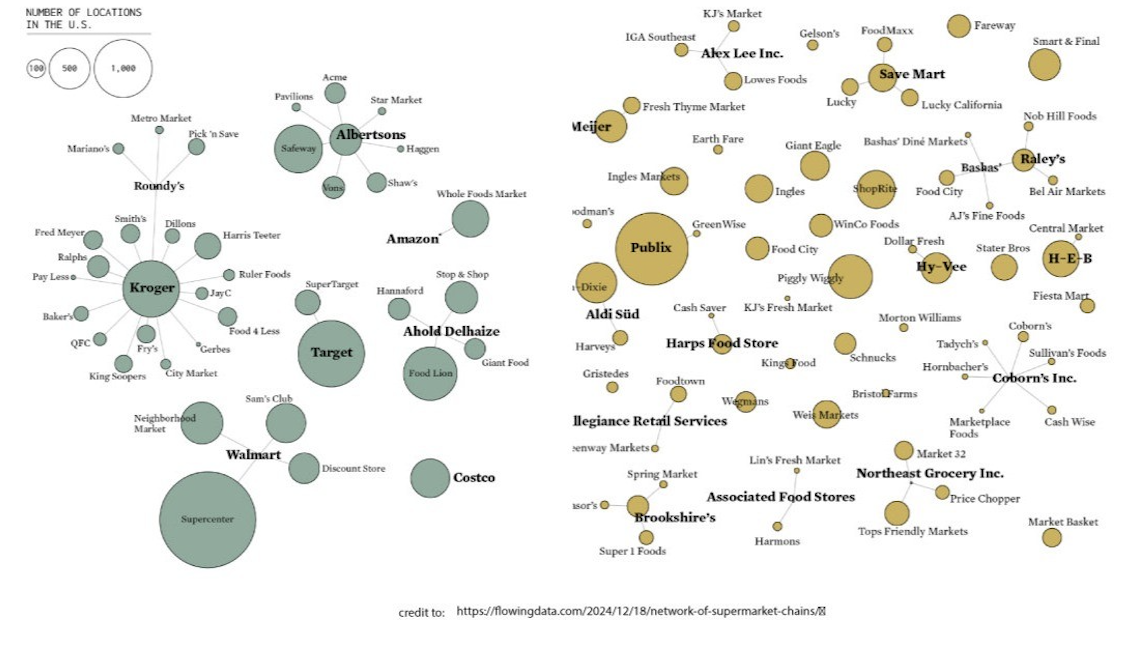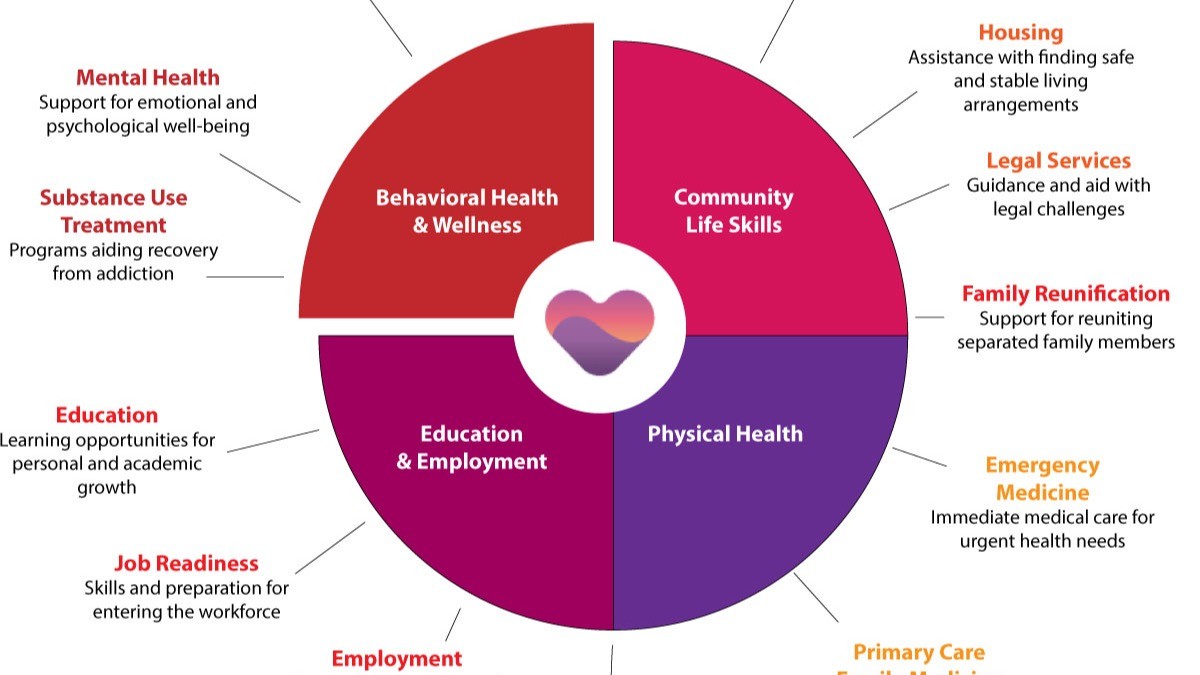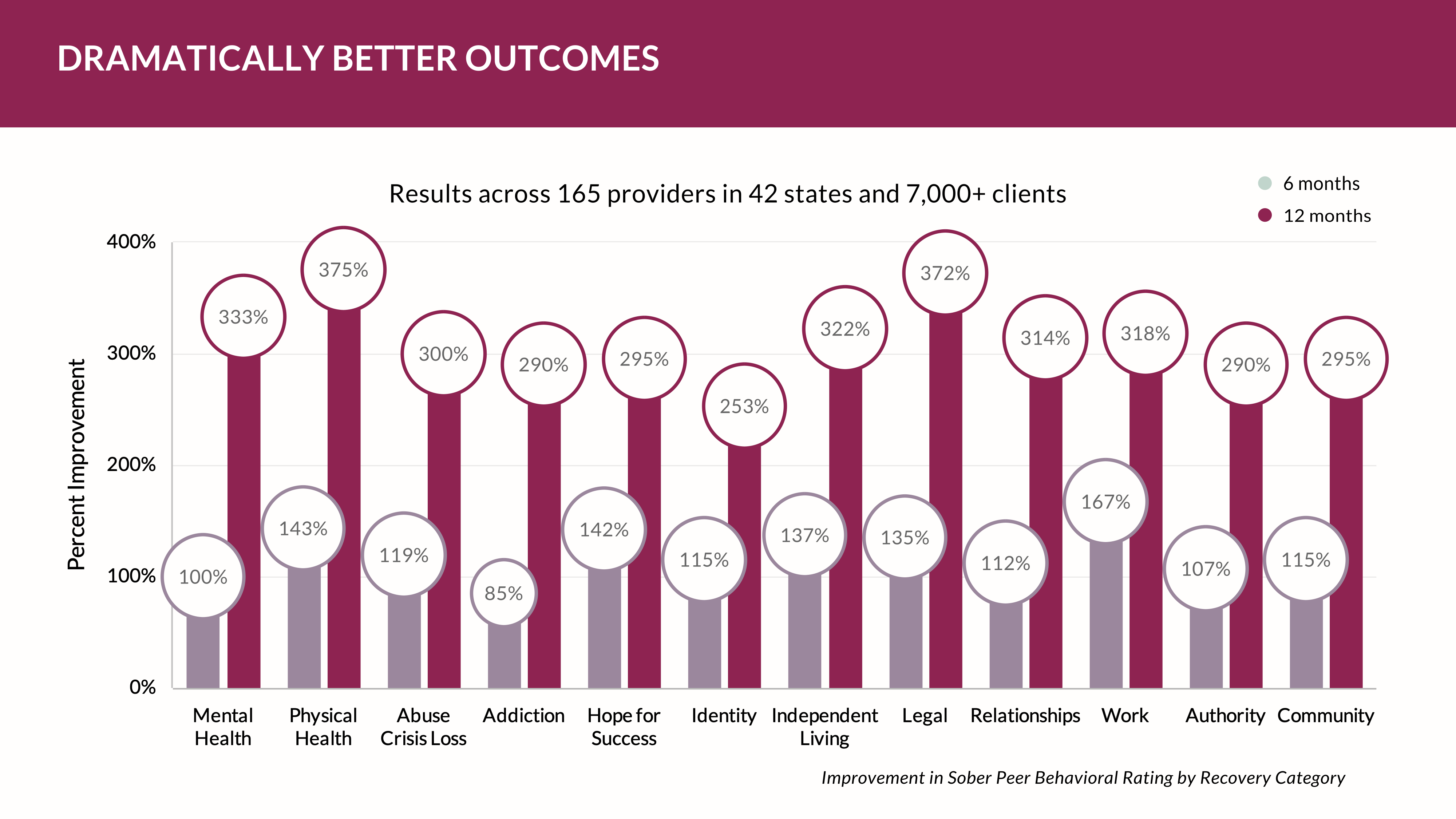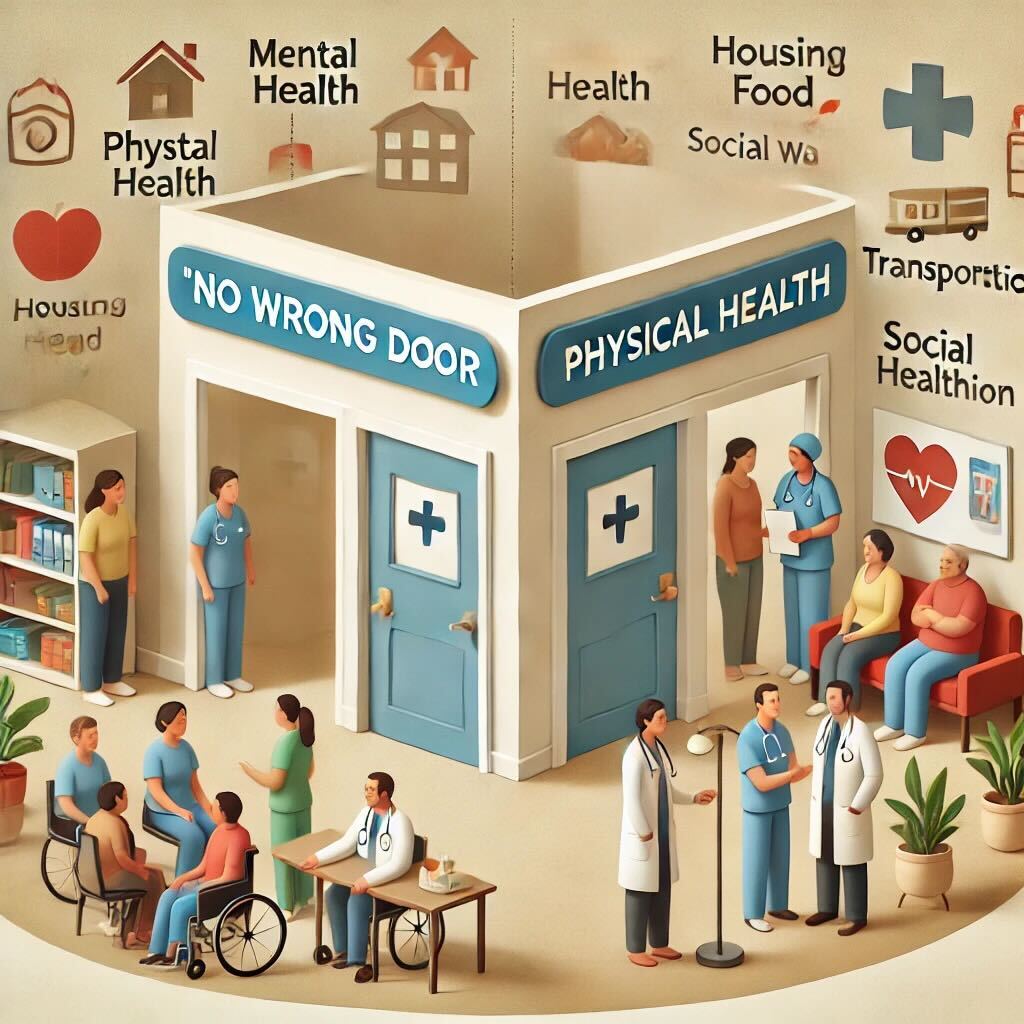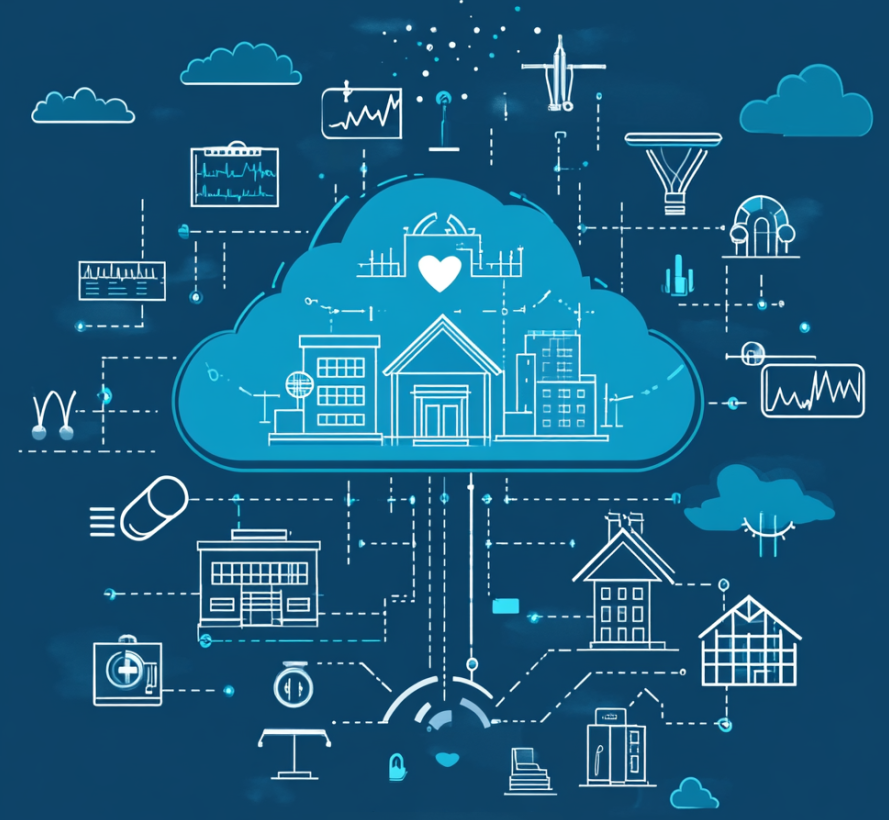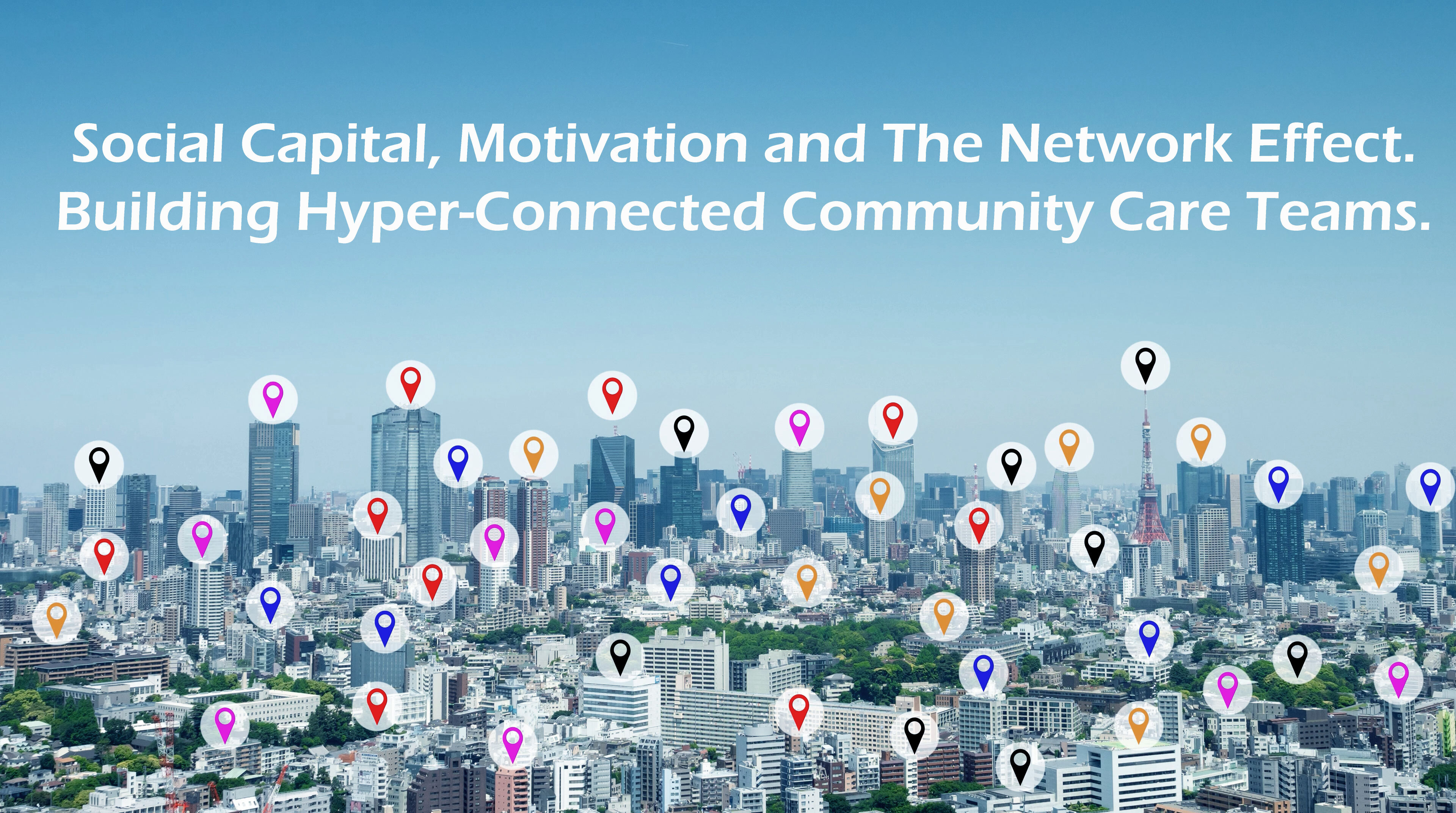Published Date:
Dec 27, 2024
Exclusive
Mental Health
Addiction
Drugs
Supersized or Specialized? Healthcare’s Big-Box Wake-Up Call
(Spoiler Alert: In this article I make a case for decentralizing healthcare data and care delivery with private, local co-op networks—because sometimes, what’s happening in your own backyard matters more than any big-box blueprint.) Reading time: 4 minutes.
Imagine walking into a massive supermarket chain that has perfected the art of selling you stuff. Every box, bottle, and bag sits exactly where some algorithm said it should, prices adjust like clockwork, and each decision is backed by a mountain of data. Big supermarkets know what sells and what doesn’t, which items run out first, and even how store layouts can nudge you into putting a few extra snacks in your cart. With that level of insight, these giants can score great deals from suppliers, keep popular products on hand, and beat smaller stores on price and selection. But, it's a burn-out place to work.
Now swap out “groceries” for “healthcare.” Large hospital systems and insurance companies are doing something similar: they collect huge amounts of patient data, analyze outcomes, and track how well certain treatments work. Armed with that knowledge, they can negotiate lower prices with drug companies, streamline their care models, and shape the market in their favor—just as supermarket chains leverage their size to outdo the neighborhood grocer.
Why Being Big Seems to Work—At first with tons of data at their disposal, big organizations can make smarter, more efficient decisions.
Think of it like knowing exactly when to mark down ripe bananas before they go bad. In healthcare, this could mean pinpointing the most effective treatment plan for the majority of patients and negotiating discounts on costly drugs or devices. More often than not, that translates into reduced costs, standardized quality, and widespread availability. Except, when you're the patient caught up in the system.
Here’s the twist: scale alone isn’t the secret sauce. What if “Local” became the new “Big”?
Smaller healthcare providers—community clinics, specialized practices, local health networks—will become far more powerful if they had access to the same depth of data, tailored to their specific region’s needs. Instead of relying on sweeping averages and national trends, these local outfits could use hyper-granular data to understand the health risks unique to their communities. (Warning: don't bet on the health data sharing myth. No one is motivated to try and figure that out. And, the Bigs aren't giving that up without a fight).
Locals already know which conditions are most prevalent in their markets, which treatments are working best for their patient mix, and where the real healthcare gaps lie. But, they can't present it well because the EHR systems aren't designed for it.
Armed with localized data, smaller organizations could flip the script on the big players. By defining risk at the local level—think of it as knowing exactly which aisles in your community’s healthcare “store” need more stocking—they could negotiate better prices for treatments and medications that matter most to their patients. More precise data means more accurate pricing, which drives down costs and makes healthcare more affordable for everyone. It also means that payers—like insurers—would have a clearer picture of local healthcare needs.
With a finer-grained understanding of who needs what care and when, insurers could set fairer rates, improve access, and reward clinics that are making a tangible difference in their communities.
Faster Innovation, More Personal Care
This local-first approach doesn’t just shift power—it fosters innovation. Smaller players can pivot quickly, adopt new technologies, and respond to emerging health trends in real time. There’s less red tape, more willingness to take bold steps, and an incentive to tailor solutions to the people actually walking through their doors. It’s like the neighborhood grocer who suddenly stocks the region’s new favorite snack weeks before the big chains even notice the trend.
At the same time, hyper-local data encourages more personal, human-centered care. Instead of following a national “standard patient” playbook, doctors and nurses can base decisions on actual community-level patterns. They can move beyond the “average” patient and focus on the real patients right in front of them—improving outcomes, building trust, and making healthcare more humane.
What’s at Stake? If we let a handful of big systems dictate how healthcare works, we risk losing that personal touch and the innovation that comes from thinking locally.
When data is hoarded at the top, smaller providers struggle to compete. But if we decentralize and share data in a way that empowers local clinics and practices, we can break the big-box cycle. Risk becomes clearer, costs become fairer, and access becomes easier. The end result? Healthier communities and better outcomes for everyone.
In the End…
The lesson from the supermarket aisle is that bigger isn’t always better. Yes, large organizations can standardize and streamline services, but that comes with trade-offs: less flexibility, fewer unique solutions, and a one-size-fits-all mentality.
By decentralizing healthcare data, we can give smaller providers the edge they need to thrive, driving prices down, define risk more accurately and pushing quality, innovation, and patient satisfaction up.
In a future where the smallest clinic can wield data as effectively as the biggest hospital chain, we’ll see healthcare that truly meets people where they are. Instead of one giant store trying to serve everyone the same way, we’ll have a network of local “shops” tuned into their community’s needs.
Can we flip the system with a new type of data—turning healthcare into something that feels less like an impersonal mega-market and more like a familiar place that knows you by name?
We’ll be watching.
Ed DeShields is Chairman of Community Assurance, a consolidated holding company that includes retail and healthIT companies including YOUU Health’s platform, the YOUUniverse that helps community healthcare providers build their own private, local care networks without the usual barriers that make it hard to understand patient results, risks, access, and cost.
We put the power back in the hands of care teams by offering a simple, connected platform that leads to more responsible, patient-focused care.”
Other Blogs
The Plan No One Sees Coming—But Soon Will
Exclusive
Mental Health
Addiction
Drugs

Ant Pheromone Study May Improve Mental Health Outcomes
Exclusive
Mental Health
Addiction
Drugs
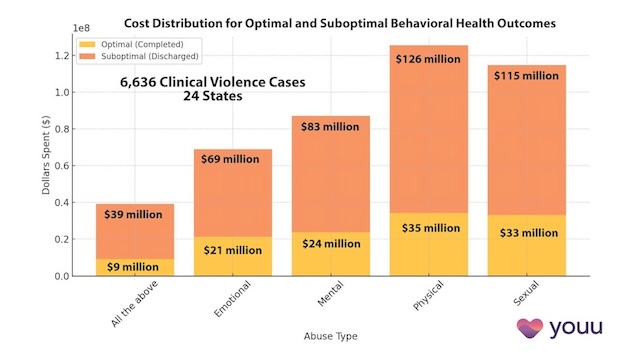
Interrupting Violence Should Be Irresistibly Investable
Exclusive
Mental Health
Addiction
Drugs
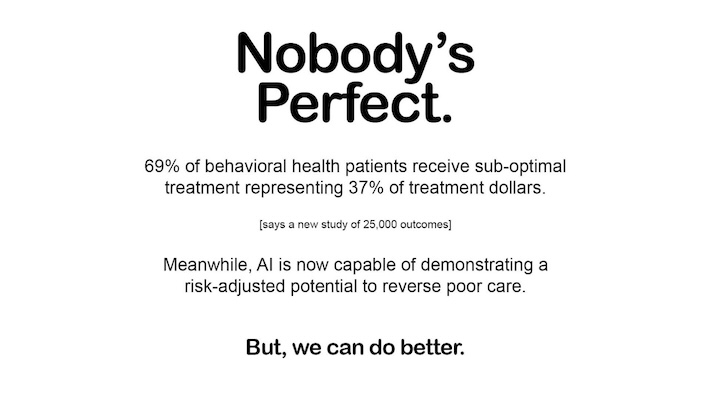
69% of Behavioral Health Patients Receive Sub-Optimal Care According to a New Analysis
Exclusive
Mental Health
Addiction
Drugs
Other Blogs
Have Questions? Lets Meet
Select a time you like to meet with us
